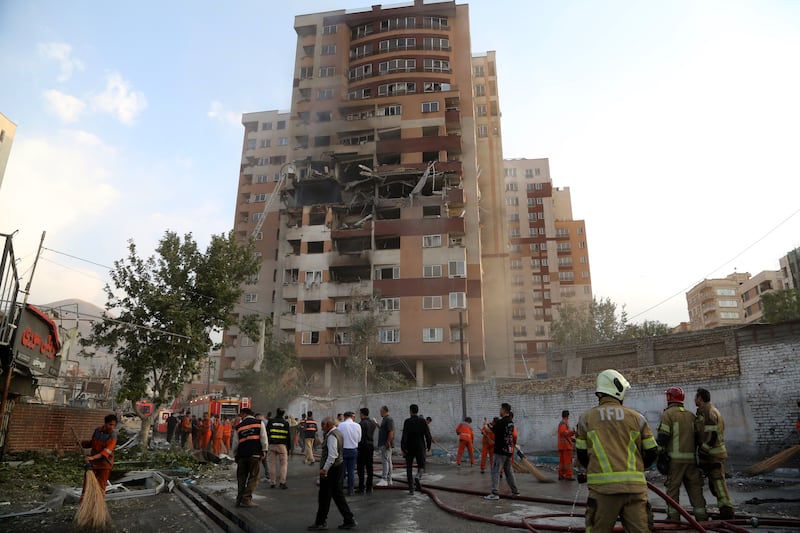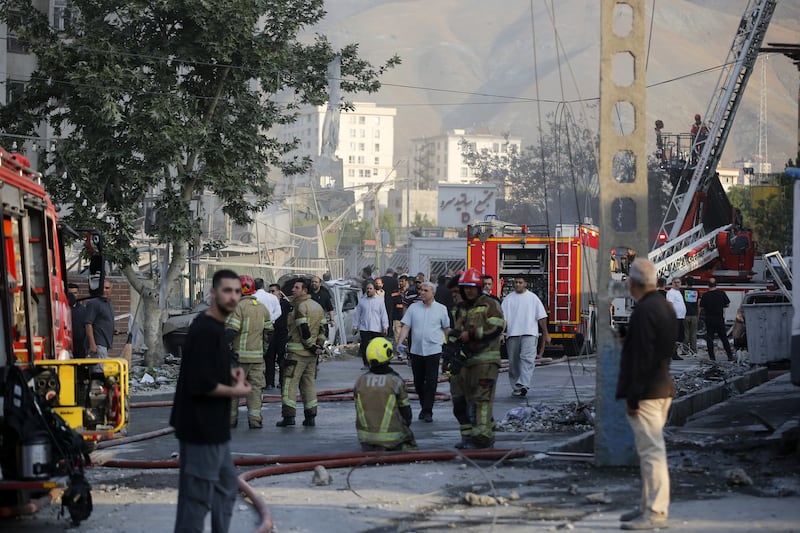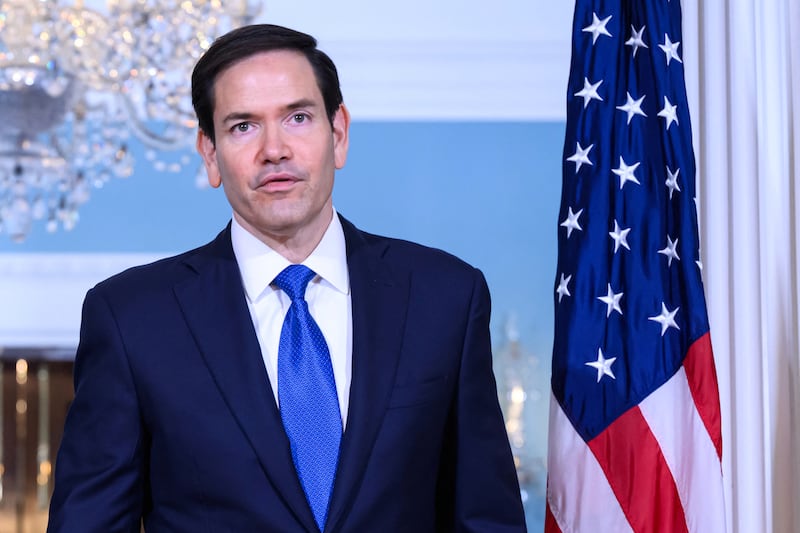U.S. Secretary of State Marco Rubio rushed to assure the world that America had not been involved after Israel launched overnight strikes on Iranian nuclear facilities.
But, almost instantly, Iran made clear it wasn’t buying it—and warned that Washington would be held accountable too.
“We are not involved in strikes against Iran and our top priority is protecting American forces in the region,” Rubio said late Thursday in a statement reported by Reuters, insisting Israel’s decision to strike had been unilateral.

He did, though, concede the Trump administration had been made aware an attack was coming. “Israel advised us that they believe this action was necessary for its self-defense,” he said.
The raids—which Israel said were to stop Tehran developing atomic weapons—could not have happened at a worse time for the White House, coming just days before a planned sixth round of nuclear talks in Oman between U.S. special envoy Steve Witkoff and Iranian Foreign Minister Abbas Aragchi.
And Rubio’s diplomatic firewall didn’t hold for long.
Araghchi quickly torched the Rubio line, laying direct blame at Washington’s feet. “The aggressive actions of the Zionist regime against Iran could not have happened without the coordination and approval of the United States,” Araghchi said, according to Iran’s state-run FARS news agency, as reported by NBC News.
“Therefore, the American government, as the main supporter of this regime, is also responsible for the dangerous consequences of these actions.”

Araghchi also warned Iran would “defend the country decisively and without hesitation, using whatever methods they consider necessary.”
The attack could hugely complicate U.S. policy in the Middle East. President Donald Trump has been publicly pushing for a new nuclear deal with Iran—to replace a 2015 deal he walked away from during his first term—while simultaneously warning the country it cannot pursue nuclear weapons.
Trump met Israeli Prime Minister Benjamin Netanyahu on Monday, where they discussed Iran and Israel’s war in Gaza.
Speaking to reporters on Thursday, he hinted that an Israeli attack was imminent.
“I’d love to avoid conflict,” the president said, before adding: “Iran’s going to have to negotiate a little tougher, meaning they’re going to have to give us some things that they’re not willing to give us right now.”
Rubio, in his statement, was more hawkish. “Let me be clear: Iran should not target U.S. interests or personnel,” he said, a day after Washington ordered diplomatic staff to leave parts of the Middle East due to rising threats.

Notably absent from Rubio’s statement was any explicit assurance that the U.S. would back Israel if Tehran retaliated—a line that had once been a hallmark of U.S.-Israel policy.
Trump, meanwhile, who finds himself increasingly at odds with Netanyahu over Iran and Israel’s conduct in Gaza, is walking a tightrope.
As earlier reported, just two hours before explosions were first reported in Iran, Trump made a last-minute appeal for calm on Truth Social—but his pleas went ignored.
Despite warning the Middle East “could be a dangerous place,” the Trump administration said after Thursday’s strikes that the nuclear negotiations were still on track—at least for now.
“We still intend to have talks Sunday,” a U.S. official told Reuters. Trump, however, struck a less confident note in an interview with Fox News: “Iran cannot have a nuclear bomb, and we are hoping to get back to the negotiating table. We will see.”
The post Rubio’s Bid to Distance U.S. From Israel’s Attack on Iran Immediately Blows Up appeared first on The Daily Beast.




